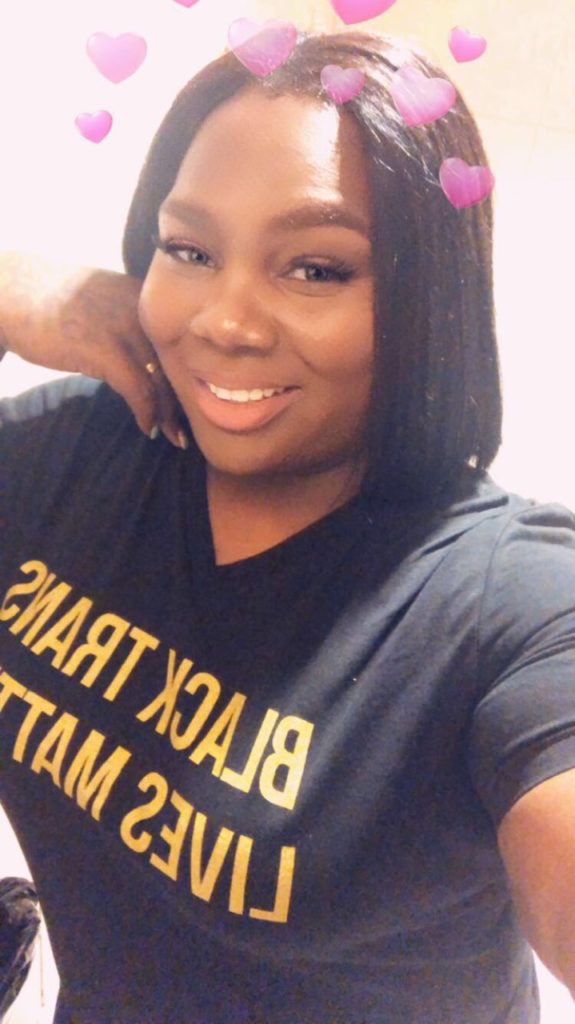
Since late August, six trans women of color have been murdered in the United States, including a woman murdered by a serial killer working for the US Border Patrol. In 2018 so far, over 20 trans people have been murdered in the United States. In New Orleans in 2017, two Black trans women were murdered over Mardi Gras weekend; the status of their cases is unclear. The media has consistently misidentified them, misgendering and demonizing them. Police response to these murders has been inadequate at best and insulting at worst. Trans people, especially Black trans women, face disproportionate violence in the United States. Instead of receiving protection from police, they are often profiled as sex workers and criminalized for simply being themselves. In New Orleans, NOPD continues to harass trans women of color, and local resources are sparse.
Workers Voice spoke with Bayleigh Martin, a Black trans woman who works as an organizer for Breakout, a local organization that serves LGBTQ youth of color, about what trans youth of color face in New Orleans and the conditions that they live in.
Workers Voice: Hi, Bayleigh. Can we start with your telling me a little bit about what trans youth face in New Orleans on a daily basis?
Bayleigh Martin: People are just on them, making them feel like they’re less than, like they’re not worth anything. There’s not many schools that actually take the time to do a mental health check of the child. Some trans kids are not comfortable being who they are; some kids can’t not live how they want to. Some parents kick them out. How can they go to school if they have no place to call home?
Workers Voice: You mentioned children being kicked out by their parents. What are their options for finding shelter when that happens?
Bayleigh Martin: Trying to find shelter is very hard. Covenant House is always full. Trying to navigate in the world without that support from your family is very disheartening and very hard. Even as a heterosexual person, it’s hard. When you’re confronting yourself and your own sexuality, when people aren’t accepting it, it becomes … a mental health issue. It’s very hard to try to cope, because… You’re saying, ‘You’re my mom and you’re treating me like this. Am I not worthy? Am I not good enough to live?’ It can make you wanna kill yourself.
Workers Voice: What do trans youth face in local schools?
Bayleigh Martin: There’s not really support. It’s either or. Most of them do have something, but it’s like, ‘Do I wanna go through all of this just to go to the bathroom?’ I’m damned if I do and I’m damned if I don’t. I’m damned if I go into the boys, because I might get raped or beat up. If I go in the girls, they think I’m looking at them, but I’m not. They’re not on my radar.
Workers Voice: You’ve talked before about challenges trans people face when it comes to their IDs. Can you tell us more about that?
Bayleigh Martin: Your ID is important because [for instance] if I’m trying to be called, say, Melody and everybody calls me Melvin, so like the name my mother gave me, that’s not my name. Or I say, ‘Please call me this, or use she and her pronouns,’ but you’re still trying to correct me on who I am based on my ID, it’s hurtful. I’m telling you who I am. I don’t care what my ID says. It creates an issue. And for me, working in fast food, it was very hard because your real name is put out there [on your name tag].
Workers Voice: What do trans youth of color face when it comes to the local police?
Bayleigh Martin: Well, they can arrest you for carrying condoms in your purse, because they think you’re doing [sex work]. They can stop you and you could be subject to a search. There’s so much. They harass you. You could be put in the wrong jail. It’s dangerous just being out there as yourself.
Workers Voice: There were two murders of black trans women here last year.
Bayleigh Martin: The girls who are living their life, just living their best life, it’s dangerous for them. A friend of mine said, ‘How can we expect respect when the police don’t respect us?’ It’s a lot.
Workers Voice: What sort of obstacles do trans youth face when it comes to medically transitioning in New Orleans?
Bayleigh Martin: Some [trans youth] end up going to different people, asking what’s the best way to transition or come out. They want to hurry up. They’re not able to go to professionals. You’re not gonna have the right [treatment]. I know one girl had some stuff that was killing her from the inside out. There are risks if it’s not a professional. But everybody’s transition is their own. You are not going to be the same size, the same color, as another woman, because as you see, everybody’s different. While you find a role model, they’re not gonna help you on your own. You’re not becoming your own way.
Workers Voice: What changes would you like to see in New Orleans to make it safer or better for trans youth?
Bayleigh Martin: More queer spaces for queers to be safe in. More help as far as jobs and housing. More help with mental health issues. I want the police to step up and not downtrod on us. I want them to not keep us under the board, under the counter, tucked away, then wanna come when it looks good for the press.
